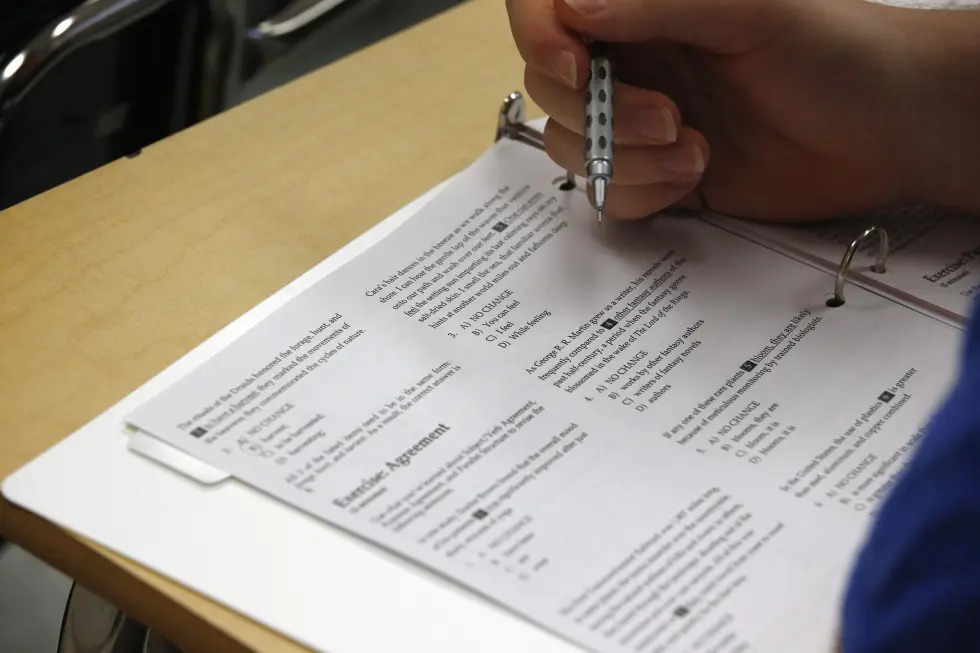As people around the country came together Wednesday to celebrate National Girls and Women in Sports Day, President Donald Trump issued an executive order banning transgender women and girls from competing in women’s sports.
The “Keeping Men out of Women’s Sports” order says institutions who don’t comply will be ineligible for federal funding in accordance with Title IX of the Education Amendments of 1972.
“In recent years, many educational institutions and athletic associations have allowed men to compete in women’s sports,” the order reads. “This is demeaning, unfair, and dangerous to women and girls, and denies women and girls the equal opportunity to participate and excel in competitive sports.”
The White House invited young female athletes to gather around the president to witness the signing as well as Louisiana politicians like Gov. Jeff Landry and Rep. Julia Letlow. For Letlow, a former collegiate track and field athlete, this order was a personal matter.
“Only biological females should compete in women’s sports,” Letlow posted to X, formerly Twitter, after voting for the “Protection of Women and Girls in Sports Act,” which would prohibit transgender students from participating in sports that align with their gender identity.
Also in support of the act was U.S. House Speaker Mike Johnson, a Republican Louisiana representative and an outspoken supporter of Trump.
“This is a great day for women in America,” Johnson said in a press conference after the bill was passed in the House.
Last week, Johnson once again spoke on the issue in a post to X after Trump signed the executive order.
“Common sense is back in the White House!” Johnson posted in praise of the order.
In signing this order, Trump fulfilled one of the “20 core promises” he made during his campaign for reelection. The promise stated he and Vice President Vance would “keep men out of women’s sports,” referring to transgender women.
By Thursday, the NCAA augmented its policies to meet the president’s guidelines. With fewer than 10 openly transgender athletes competing in the NCAA as of December, the new policies have barred the athletes from competing in their gender-respective sport.
“We strongly believe that clear, consistent, and uniform eligibility standards would best serve today’s student athletes instead of a patchwork of conflicting state laws and court decisions,” NCAA President Charlie Baker said. “To that end, President Trump’s order has provided a clear national standard.”
Former collegiate swimmer at the University of Kentucky Riley Gaines, who has spoken out against trans athletes’ participation in college sports, was quick to voice her praise of the NCAA’s decision to cooperate with the president’s order.
“Now they can work on stripping all records, titles, and honors from men who stole them from deserving women,” Gaines posted to X.
Critics of the order argue transgender athletes don’t have an advantage over other competitors. Lia Thomas, the first openly trans woman to win an NCAA Division I championship, opposes the executive order, saying it’s discriminatory and a violation of trans athletes’ rights.
“Bodies come in all shapes and sizes,” Thomas told ABC News. “There’s no one single determinant factor in athletic performance. It’s just too complicated to narrow down to one thing.”
Journalist and trans athlete Karleigh Webb says the order will be harmful, especially for trans youth, and is reflective of a larger movement against trans people.
“For young people coming up, especially for these kids and especially in middle school and high school, this is very difficult,” Webb said. “This is brutal on them, it’s harsh on their families and don’t think that this is the end of it. This is part of a whole program to essentially erase transgender Americans from American life.”










